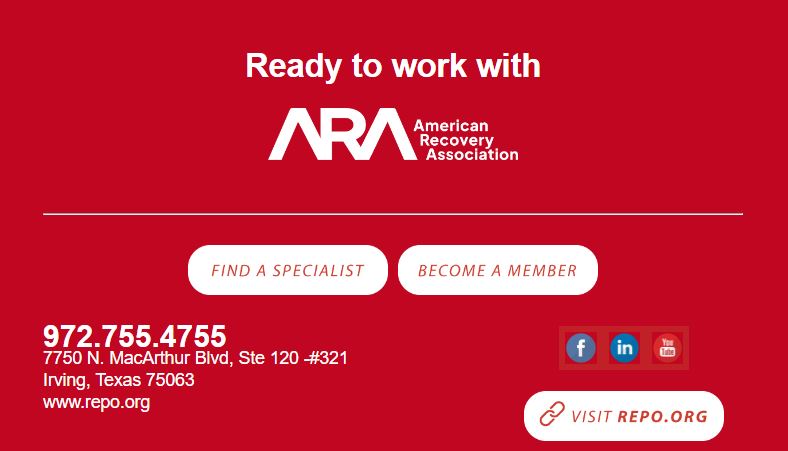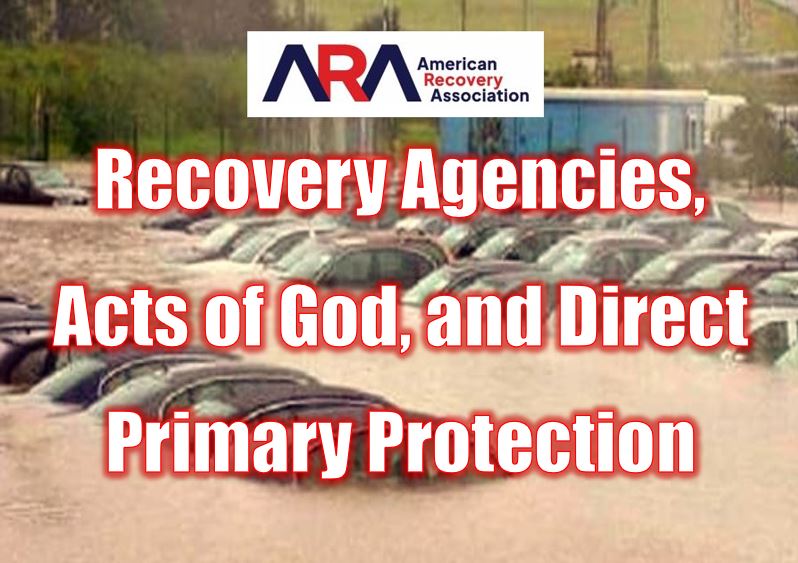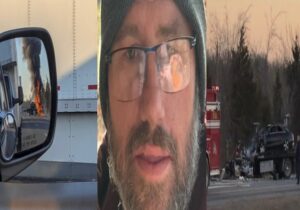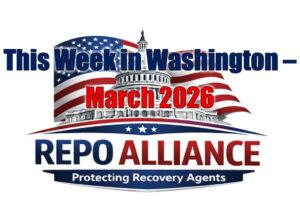EDITORIAL
In the wake of Hurricane Helene, we are witnessing an unprecedented level of devastation. And now Hurricane Milton, a category 4 hurricane, is hitting Florida. These very recent events have once again shined a light on the issue of expensive Direct Primary Protection being provided by agents who have no stream of revenue being provided for this coverage protection. Lenders have a vested interest here — THEY should cover anything while these units are being stored or pay storage.
Fortunately, we are starting to hear from some lenders who agree. From Matt Siewicki with Credit Acceptance Corporation, “As we discussed, we will not hold the repossession service provider responsible if loss occurs while the vehicle is in their custody and the damage or loss occurs, in whole or in part, as a direct or indirect result of an Act of God, and it could not have been avoided. I could see some exceptions to this; for example, if the repossession service provider is responsible to transport and they did not transport the vehicle to the auction within 10 days (when they could have).” This is the right thing to do, and we applaud CAC for their approach to this situation.
We expect more lenders to come forward with the same approach, as this should be the standard.
It is being reported that a well-known automaker and lender is setting appointments in North Carolina for redemptions, knowing the agents can’t even get to their lots and don’t know the condition of the vehicles. We need a pause in redemptions and any type of work when Acts of God take place until recovery agents can safely access and report the condition of their inventory. Just as accounts are placed on hold when a storm is pending, there must be consideration provided to the agents in these areas post storm to have time to assess their personal damage as well as any damage to their business.
The repossession industry has been hit particularly hard. Many agents, the backbone of our industry, have been left without access to their lots, unable to assess the extent of the damage. They are facing a heartbreaking reality — their buildings, equipment, vehicles, and personal property have been destroyed. At this moment, these agents are fighting to support their families and employees amidst this catastrophe.
This was an Act of God. It was beyond anyone’s control. Yet for far too long, agents have been expected to cover the costs of damage they couldn’t prevent. NOW is the time to address this unfair double standard.
Agents did everything they could to prepare for the hurricane. They tried to move vehicles off their lots to safer locations, but many auctions refused to accept them, citing storage issues or insurance concerns.
If these vehicles had been moved to an auction lot, the auctions themselves would not have had Garage Keepers Direct Primary coverage to protect against the extensive damage caused by the hurricane.
Now, agents are left facing financial ruin. They have not only lost the vehicles they were storing (often at no cost to lenders), but also their own assets — trucks, equipment, and buildings. Garage Keepers Direct Primary coverage may respond to these losses, but this comes at a steep cost to the agents and the repossession industry as a whole.
If carrier partners require agents to file claims for the cars destroyed on their lots, the agents will face significant increases in their insurance premiums.
Moreover, the deductibles alone can be staggering, sometimes exceeding $50,000. For programs with no “Per Claim Cap,” the financial burden could be insurmountable. These agents provided free storage to lenders, and now they are asked to pay the price for an Act of God they had no control over.
Recently, a member contacted us stating, “You’ve got lenders who are trying to force direct primary on these losses from Helene against the agencies. You’ve got lenders who are actively accepting redemption payments in these areas after it being known that the cars are gone, missing or damaged. This appears to be done to shift liability for losses on a particular party. Maybe touch on that and do a release talking about allowing Force Majeure to be the guideline when the lender is determining their losses. After all, I’m almost certain that direct primary isn’t enforced for losses at the auctions from acts of Mother Nature.”
Now is the time for the repossession industry to come together and support one another. We call on lenders, auctions, and all stakeholders to recognize this situation for what it is: an extraordinary natural disaster that no agent could have prevented. We urge you not to capitalize on this tragedy by pushing financial responsibility onto agents who are already struggling to rebuild their lives and businesses.
It is time to end the double standard that has been putting good agents in financial jeopardy for too long; and to bring a sense of common courtesy to the space, as sure as holds are put on pre-storms, etc., there must be post-storm holds for redemption activities as well.
Let us not compound their loss by cashing in on an Act of God that was beyond their control. The market has changed, and so must our expectations and support for the agents who serve it.
Together, we can rebuild stronger. But that strength will only come from unity and a level playing field.
Vaughn Clemmons
ARA President












More Stories
Colorado Bill Aims to Severely Impact All Repossession Operations
Take the Survey: Tell RDN What Recovery Pros Need Most
Today is Fallen Agents Day – 2026
From Auction Cutting to Field Programming: The Structural Shift No One Budgeted For
Winter Storm Serves as Wake-Up Call for Repossession Industry Preparedness
American Recovery Association Urges Industry-Wide Action Against Municipal “Pay-to-Play” Repossession Ordinances